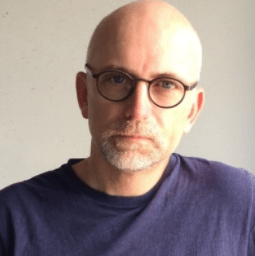Editor’s Note: We’re continuing our series of interviews with the authors of the newest edition of the Social History of Alcohol and Drugs, ADHS’s journal, published by the University of Chicago Press. Today we feature Alexander Dawson. Dawson holds a PhD in Latin American History from SUNY Stony Brook, and is an Associate Professor of History at SUNY Albany. Until 2017 he was Professor of History and International Studies at Simon Fraser University in Vancouver, Canada. He is the author of four books and numerous articles, and for most of his career has written about indigeneity and indigenous-state relations in Mexico. His most recent book is titled The Peyote Effect: From the Inquisition to the War on Drugs, and was published by the University of California Press in 2018.
You can see Dawson’s article here for free for a limited time. Contact the University of Chicago Press to subscribe to the journal or request access to any other article from SHAD’s history.
Tell readers a little bit about yourself.

Dr. Alexander Dawson
I was trained as a historian of Mexico. I don’t always realize this as I am researching and writing, but my work invariably focuses on inequality. For many years that was inequality in Mexico, but in the past decade or so my focus has spread, as I have tried to link what I understand about Mexico to a larger concern about where we are heading as a planet.
What got you interested in drugs (and their history)?
I came to drugs (and especially peyote) inadvertently. I was working on a project comparing the experiences of indigenous peoples in Mexico and the US (the project was going to be about boarding schools) when I came across a file titled “peyote” in the US National Archives. As I read the file, I realized that I could do a much more interesting project on peyote than on the boarding schools, and began a decade long project that resulted in my 2018 book from the University of California Press. Along the way, I realized that the history of drugs represents a really important and fascinating window into the history of race, science, the law, and society more generally.
Explain your journal article in a way that your bartender won’t find boring.
I think you underestimate the average bartender. They tend to be very good listeners, and are extraordinarily good at not looking bored, even when they are. But if I were to attempt to explain it to someone who really did not care, I would say that there is this word, “sacred”, that we use a lot these days, especially in the context of environmental activism. We all think we know what it means, but if we really look closely at how we are using it, we might not be so comfortable with what we see. What we see has troubling implications both for how we think about environmentalism, and the way we place indigenous peoples into the environmentalist movement.
Is this part of a larger project? What else are you working on?

My new project is a little different. It picks up on the environmentalist aspects of this work, as well as the transnational interest, but the book is about bike lanes. Specifically, the book is about the controversies that surround the creation of bike lanes, and what they can tell us for the nature of contemporary environmentalist practices.
Based on your research and experience, what do you see as the frontier or future of the field?
Well, I think there are a lot of different frontiers in the field. Obviously, we are still in a moment where the connection between drug history and decriminalization is critical. This is especially from a Latin Americanist standpoint, as scholars working in these fields play a central role in reminding readers in the principle consumption markets of the costs associated with the Drug Wars. Social history makes the victims of these conflicts more visible.
More than this though, I think that those who work on psychedelics like peyote have an important role to play in re-centering these substances as a part of alternative therapeutic practices. The work being done by historians in these fields is critical in both de-stigmatizing these substances and in generating better understandings of how prohibitions came to be during the 20th century.
What scholar, living or dead, would you most like to have dinner with?
I am a bad person to answer this question. I don’t really like to talk to strangers, and when I do, especially if they are someone I want to impress, I am more likely to say something that makes me look like an idiot than I am to have a good time. I like to have dinner, I love to have dinner, with my teachers, in particular Paul Gootenberg, Barbara Weinstein, and Brooke Larson. I may look like an idiot talking to them too, but I trust that they won’t tell anyone.
